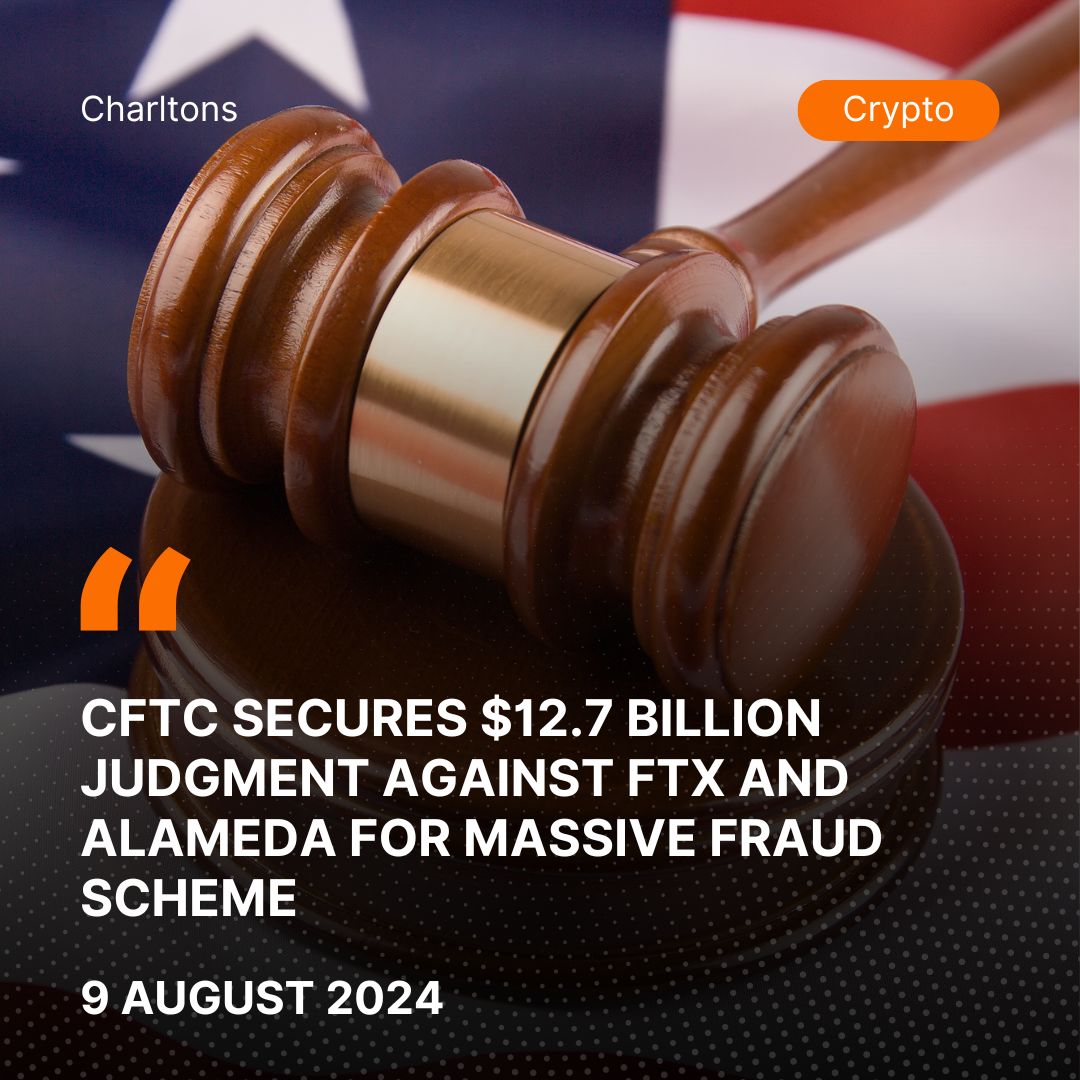
On 08 August 2024, the Commodity Futures Trading Commission (CFTC) announced a landmark decision by the U.S. District Court for the Southern District of New York, which ordered FTX Trading Ltd. and Alameda Research LLC to pay a staggering $12.7 billion in monetary relief to victims of their fraudulent activities. This judgment is one of the largest in the history of financial fraud cases, reflecting the scale of the misconduct orchestrated by Samuel Bankman-Fried and his associated entities.
The court’s order requires FTX and Alameda to pay $8.7 billion in restitution to customers who suffered losses due to the misappropriation of their funds. An additional $4 billion is to be paid in disgorgement, which will be used to further compensate the victims through a supplemental remission fund. This resolution comes after a series of legal actions taken against Bankman-Fried and his companies, which began with the CFTC filing a complaint on 13 December 2022. The initial complaint alleged that Bankman-Fried, FTX, and Alameda engaged in extensive fraud, causing the loss of over $8 billion in customer deposits.
The court’s findings revealed that FTX falsely presented itself as a secure platform for trading digital commodities, such as Bitcoin and Ether. The company claimed that customer assets were held in “custody” and segregated from FTX’s own funds. However, the investigation uncovered that these assets were commingled with Alameda’s funds and used for various unauthorized purposes, including luxury real estate purchases, political contributions, and high-risk investments. Furthermore, FTX employees, under Bankman-Fried’s direction, manipulated the platform’s code to allow Alameda to execute transactions even without sufficient funds, effectively granting them an unlimited line of credit at the expense of FTX customers.
In a related settlement agreement approved by the Bankruptcy Court for the District of Delaware, the CFTC agreed not to seek a civil monetary penalty against FTX and to subordinate its monetary claims to those of victims of the FTX fraud scheme.
This legal victory is not only significant for the compensation it provides to the victims but also for its broader implications in the digital asset space. CFTC Chairman Rostin Behnam emphasized that this case underscores the critical need for comprehensive regulation in the digital commodity markets. “FTX used age-old tactics to create an illusion of safety in the crypto markets, but the fundamental regulatory safeguards were glaringly absent,” Behnam stated. He further highlighted that, without proper digital asset legislation, similar entities will continue to operate in the shadows, deceiving customers and undermining market integrity.
The swift resolution of this case, achieved just 21 months after FTX’s collapse, is a testament to the CFTC’s commitment to protecting investors and maintaining market transparency. Ian McGinley, Director of the CFTC’s Division of Enforcement, praised the efforts of the enforcement team, noting that this recovery is the largest in the Commission’s history and was accomplished with remarkable speed.
The fallout from this case continues to reverberate through the financial industry, as the CFTC remains engaged in ongoing litigation against Bankman-Fried and other key figures involved in the fraud. The CFTC’s efforts have been supported by various federal agencies, including the U.S. Department of Justice, the Securities and Exchange Commission, and the Federal Bureau of Investigation, all of which have played crucial roles in uncovering the extent of the misconduct.
This case serves as a stark reminder of the vulnerabilities within the rapidly evolving digital asset markets and the importance of stringent regulatory oversight to protect investors from similar schemes in the future. The CFTC’s decisive action against FTX and Alameda sets a powerful precedent for the enforcement of financial regulations in the crypto space, aiming to deter future fraudulent activities and restore confidence in the integrity of the market.
(Source: https://www.cftc.gov/PressRoom/PressReleases/8938-24)





